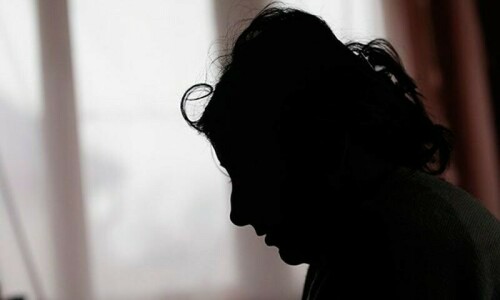KARACHI: Sindh Assembly Speaker Agha Siraj Durrani ran the house in so strict a manner on Monday that he did not allow members to ask any irrelevant supplementary questions and tersely asked some senior members, talking among themselves, to keep quiet or go outside.
The unusual strictness was perhaps in reaction to the hubbub in the house in its Friday session when opposition members asked many questions about sugar mills’ denial to pay official cane price to growers and no action being taken against the mills, a large number of which are said to be controlled by a top ruling party leader.
The opposition members made so much uproar during the question hour that deputy speaker Shehla Raza had to adjourn the session abruptly on the insistence of senior colleagues.
When the session resumed on Monday, Opposition Leader Shaharyar Mahar once again raised the sugar cane price issue and sought permission to discuss it but the speaker dismissed the request, saying the issue was sub judice hence no member could talk on it in the house under the rules.
At one stage during the question hour Mr Mahar and former chief ministers Liaquat Jatoi and Arbab Rahim went over to Jam Madad Ali and were busy discussing something when the speaker informed them that they were disturbing the proceedings. He asked them if they had something important to discuss they might go out of the hall.
Rules were followed so strictly that no member was allowed to ask two supplementary questions, as rules permitted only one question.
Whenever a member asked the second question, education minister Nisar Khuhro would ask the speaker if he was allowing him to answer and the speaker would disallow it.
The session began at 11.20 am though the scheduled time as mentioned in the order of the day was 10am. The question hour pertained to the education department.
Responding to a question by MQM’s Naheed Begum about teachers’ recruitment, the minister said that a total of 15,538 teachers had been recruited, of them the largest number of 1,595 were recruited in Karachi, 1,315 in Khairpur, Larkana (1,185 teachers), Tharparkar–Mithi (1,160), Umerkot (999), Badin (942), Shaheed Benazirabad (921), Nausharho Feroze (867) and the rest were from other districts.
In response to another question if the department followed merit in the recruitment process, the minister said the teachers were recruited after tests. Only the candidate getting 60 marks were declared successful and recruited against vacancies in their areas, he said.
He said that only 9,537 candidates passed the job tests for 12,165 vacancies for primary school teachers and were recruited, similarly only 5,345 qualified for 7,357 vacancies for junior school teachers and were hired and for 1,206 vacancies for high school teachers only 656 candidates managed to pass the job test and were recruited.
The recruitments were made on union council level. A large number of candidates failed and could not be recruited while in some cases more candidates passed the test for lesser number of vacancies in their union councils.
MQM legislator Sardar Ahmed raised the objection that by recruiting the teachers on union councils level the government had violated the quota system which prescribed 40 per cent quota for urban areas and 60 per cent for rural areas.
The minister said the step was taken to check the practice of ghost teachers. Besides, the recruitments had been done under a foreign-funded project and the donors wanted the teachers to be from the same area in order to ensure they attended the schools regularly.
In reply to a question by Saira Shahliani of the Pakistan Peoples Party about the total number of colleges in Sindh, the minister said there were 269 colleges, out of which 152 were for boys and 107 for girls while nine had co-education. Though the total, according to the minister’s figures, came to 268 but nobody noticed the error and not raised any objection.
He said that 130 colleges were in Karachi while the rest were in other districts of the province. Total number of boys was 220,117 and girls numbered 130,004.
About delay in teachers’ promotion the minister said that many teachers had been waiting for promotions owing to lack of vacancies in higher grades. A total of 350 head masters – 243 males and 107 females – who had been serving in BPS-17 for a long time had been promoted recently, he said.
Responding to a question by Pakistan Muslim League-Functional’s Mahtab Rashdi that University of Sufism and Modern Sciences at Bhit Shah had still not become functional, the minister said that off hand he was not aware of the reasons but would find out and inform the members soon.
The speaker also asked the minister to expedite the process so that higher education for such an important subject could start soon.
Answering questions of MQM legislators Naheed Begum and Saleem Rajput as to why no public sector universities had been set up in Hyderabad and Sukkur – the second and third largest towns of the province respectively – the minister said that many formalities had to be met to set up a university. Besides, public sector universities were functioning in nearby areas of both the towns where students could go and study conveniently.
PPP’s Mujtaba Asran, Jam Khan Shoro, Khairunnisa Mughal, Mahesh Malani, Hasnain Mirza, Dr Arshad Vohra of MQM, Nusrat Abbasi of PML-F, PML-N legislators Sorath Thebo, Syed Aijaz Shirazi and others also asked supplementary questions, some of which were declared irrelevant by the speaker hence not responded by the minister.
Published in Dawn, January 27th, 2015
On a mobile phone? Get the Dawn Mobile App: Apple Store | Google Play
















































Dear visitor, the comments section is undergoing an overhaul and will return soon.